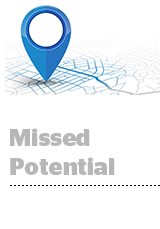
Here’s today’s AdExchanger.com news round-up… Want it by email? Sign up here.
Right Place, Wrong Time
Location-based technology fueled optimism about mobile ad revenue, but regulations like GDPR and mobile policy changes from Apple and Google have put a damper on those expectations. Now some location companies are ditching their media-buying business to focus on more holistic data services, Business Insider reports. Android has restricted the number of location pings a mobile app can make from every few minutes to a few times per hour, and iPhone owners now receive constant alert bars when apps are tracking location. Agencies have also been skeptical of location data and often want more services or granular insights than vendors can provide. “Very often, the only proof of performance for a data provider is the resulting attribution or conversion tracking that we can generate from a campaign,” says Joe Barone, GroupM’s managing partner of brand safety for the Americas. More.
A Podcast Endeavor
Podcasting is no longer a nascent media channel. Consider the companies throwing their weight behind the category. On Thursday, the same day radio broadcaster iHeartMedia purchased podcast network Stuff Media for $55 million, the sports and entertainment conglomerate Endeavor launched a podcast division with TV producer Dick Wolf as a founding partner. Endeavor will sell sponsorships for its shows (it debuts with a network of 9 million downloads) and will also look for opportunities to generate spin-off revenue by turning podcasts into TV shows. “We see an opportunity to take podcasts mainstream and open up a lot more revenue,” Moses Soyoola, general manager of Endeavor Audio, tells The New York Times. More.
Snap, Crackle, Pop?
Snap had a no-good, very bad Friday as its stock opened below $10 per share, a 60% drop from when it IPO’d a year and a half ago. When Snap went public, analysts projected the company would bring in $540 million in revenue by Q2 2018. But revenue came in well short at $283 million, per Snap’s latest earnings, Recode reports. Snap is still trying to reach a scaled number of advertisers and increase the diversity of brands in its auction, a dearth of which has limited its inventory prices. At the same time, the platform is chasing active users as people spend more time with Instagram. And aside from losing its No. 2 executive, Chief Strategy Officer Imran Khan, Snap has seen its CFO, VP of product, VP of sales, VP of engineering and general counsel depart within the past 18 months. More.
Portly Bundles
Skinny TV bundles from streaming services like DirecTV Now, Sling TV, YouTube TV and PlayStation Vue are fattening up, and so are the prices. Last week, AT&T CEO Randall Stephenson said prices for DirecTV Now, which raised its price by $5 this summer, are still too low in the long term and the company will try to offramp its more frugal subscribers to a skinnier service, WatchTV, which trims sports channels, The Wall Street Journal reports. Media consolidation is a challenge as well. As TV networks consolidate under telcos, streaming companies can also end up contractually obligated to add channels from a provider or run into barriers like agreements not to offer content at lower prices. More.
But Wait, There’s More!
This post was syndicated from Ad Exchanger.


More Stories
Making the invisible visible: Women’s Work exhibition to amplify female voices
Here are the Cable News Ratings for February 2025
The ultimate Songs of the Summer list for NZ TikTok